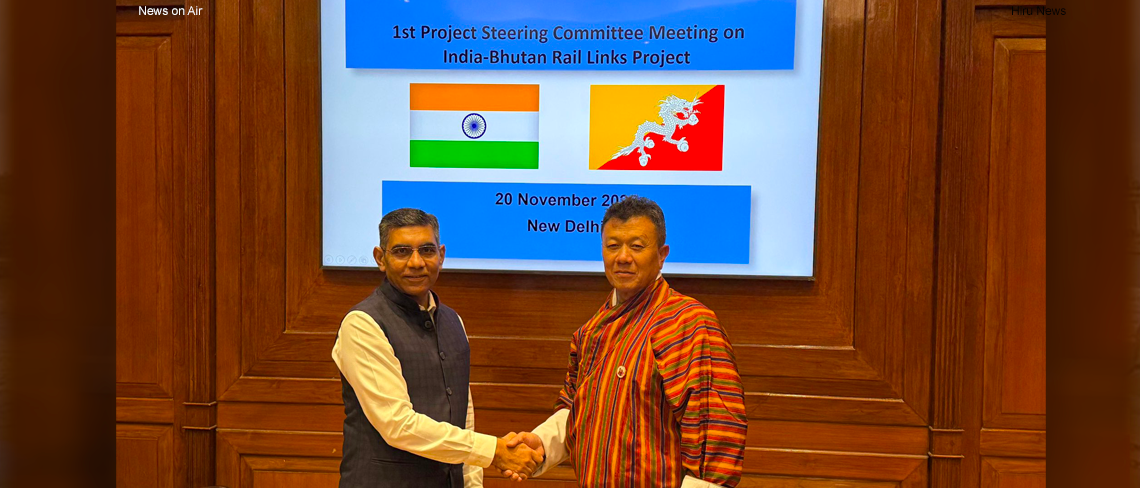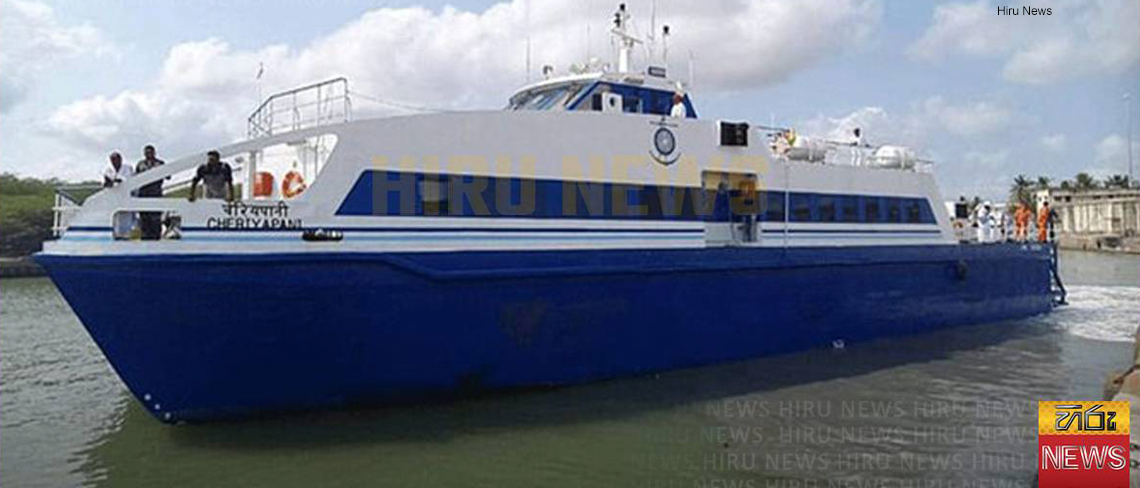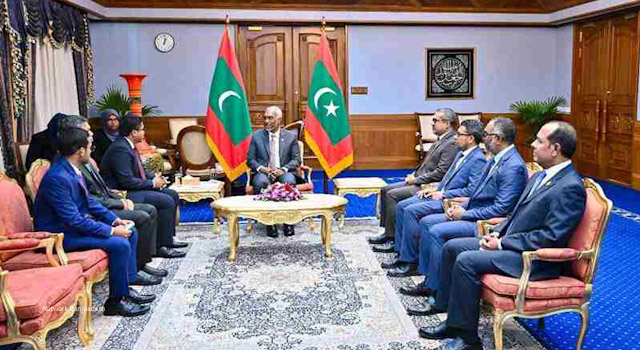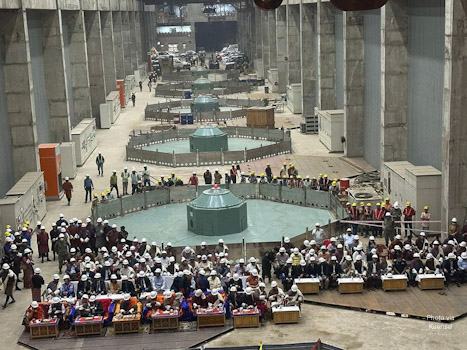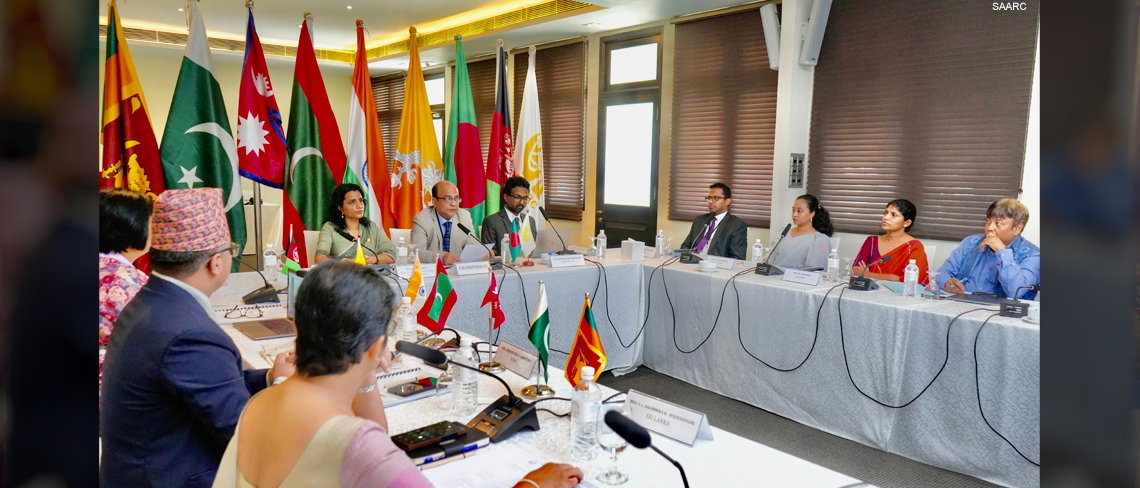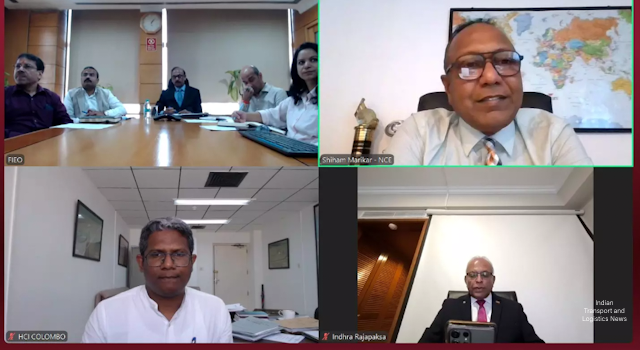
"Integrating BIMSTEC 2022" Highlights Need for Common Platform for Paperless Trade
29 January 2022

The Indian Chamber of Commerce organized “Integrating BIMSTEC 2022,” in collaboration with the Ministry of External Affairs of the Government of India, on the importance of creating a common platform for BIMSTEC countries to participate and carry forward paperless trade.
Mr. Pradeep Sureka, President of Indian Chamber of Commerce, delivered the welcome address. He noted how the COVID-19 pandemic and the associated global recession had a devastating effect on international trade. The measures imposed to manage and restrict the pandemic, including lockdowns, travel restrictions, border closures, airport shut downs, have affected the global supply chain. He highlighted that generating appropriate solutions, such as strengthening regional trade to limit the physical boundaries of disruptions, can mitigate the effect of pandemic disruptions on the economies.
Mr. Sureka further adds, “BIMSTEC was established to leverage the geographical advantage to strengthen economic & physical connectivity through more trade, investments, travel and exchange among member countries. The current trade among the BIMSTEC members has the potential to grow 5-6 folds.”
A paperless chain, he said, can make business transactions more convenient while ensuring regulatory compliance and improving the competitiveness of countries and their industries. Paperless chain has gained a considerable pace through the development of blockchain-based solutions, which is also a cost-effective way of trading internationally. He cautioned that navigation through multiple platforms, e-filing of documents, to avail tax benefits causes hardships. Hence, providing ease of compliance is one of the key objectives of the Government. He cited the Government of India’s IceGate, the national portal of Indian Customs of Central Board of Indirect Taxes and Customs (CBIC), which provides e-filing services to trade, cargo carriers and other trading partners electronically, as well as cross border trade and SEZs (Special Economic Zones).
Mr. Rudrendra Tandon, Joint Secretary, BIMSTEC & SAARC, Ministry of External Affairs, underscored that economic integration with dynamic economy of the ASEAN region and East Asia is a key pillar of the Government’s "Act East" policy. The vision of the Government is to ensure that Indian industry, particularly those industries that are located in the eastern seaport, rapidly become an integral part of the existing regional value chains that are already in operation in the ASEAN and East Asian region.
He further stated that Indian companies cannot become world-class enterprises unless they are part of or at the center of regional value chains. Eventually, the factories will have to be based partly in India, and their subsidiaries and partners spread out in low-cost jurisdictions in contiguous neighborhood BIMSTEC countries.
He emphasized the need to rapidly move goods and services across national boundaries—noting that market access, trade facilitation, investment protection are the three most critical pillars of modern-day trade agreements. The main aim is to create an ecosystem that will create regional and international value chain. Developing paperless trade has always been one of the main policy interventions that Government designed to promote the trade facilitation agenda. Paperless trade incorporates harmonization, simplification, standardization.
Dr. Posh Raj Pandey, PhD Chairman South Asia Watch on Trade, Economics and Environment (SAWTEE) stressed that trade is the key driver of strengthening regional solidarity. He highlighted that adoption of cross border paperless trade could be a perfect candidate for reducing trade cost and time, in view of the growth of multi-country supply chain, revolution in information technology, digitalization of economic activity, advent of fourth industrial revolution and the COVID-19 pandemic. Going paperless would also be beneficial for Nepal and Bhutan. It will also increase revenue yields for government through electronic data access among exporting and importing countries by enabling better tracking of the goods. The adoption of blockchain will ensure integrity of data. Small and medium size enterprises can easily access the international market through an e-commerce platform. Paperless trade will also facilitate overcoming challenges of capacity gap, mutual recognition and harmonization.
Dr. Prabir De, Professor, RIS and Coordinator, ASEAN-India Centre (AIC) at Research and Information System for Developing Countries (RIS) shared his remarks on Paperless Trade for BIMSTEC countries. With trade facilitation emerging as an important trade policy tool over the past decade, cross paperless trade agreement is important not only from a trade perspective but also in value chains within regions. He added that paperless trade can scale up the region’s trade volume, which was affected by the pandemic. He also noted that the upcoming BIMSTEC Summit 2022 is expected to implement the master plan for transport connectivity, which has 267 projects worth $124 billion. Further negotiations are also constantly being discussed, such as the BIMSTEC Motor Vehicle Agreement. He also noted that the pandemic was a boon to facilitate paperless trade, and discussions around paperless trade should result in a way forward for the whole mechanism for both regional and international trade.
Mr. N. Ramesh, Deputy Managing Director, Export-Import (Exim) Bank of India shared that the Exim Bank concentrated majorly on India’s experiences on paperless trade and attempts being made between the agencies. He also cited examples from the Republic of Korea which initiated a national paperless trade platform that pushed Korea’s export interest, reduced labor cost, and curbed the circulation of documents. He also noted important developments, such as in Bangladesh, Nepal, and India, countries that decided to exchange traffic rights to provide transit to cargo passenger vehicles across international borders, thus further transforming the economic corridor. He also shared about the e-Certificate of Origin initiated by Foreign Trade in India as an example of paperless documentation that had reduced the cost and time of doing business.
Read more about the event.
Related news
Govt aims at industry integration with East, South-East Asia: Official
Leading Indian business chamber proposes BIMSTEC platform for paperless trade




